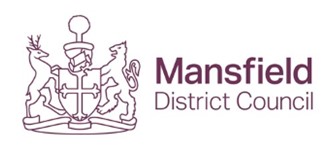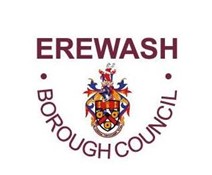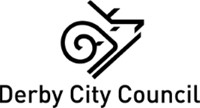Ambitious targets for cleaner energy, reducing carbon emissions and sustainable transport have been announced in a new Energy Strategy for the D2N2 Local Enterprise Partnership area.
Entitled Energy Strategy 2019-2030 – D2N2 Clean Industrial Revolution, the 44 page document sets out how the D2N2 LEP area (Derby, Derbyshire, Nottingham and Nottinghamshire) can grow its economy whilst making it cleaner and greener; taking as its three principles Low Carbon, and energy Affordability and Security.
Objectives to create a sustainable and clean growth economy by 2030 set out in the new Strategy – the details of which will be further worked on by the D2N2 LEP, with business and local authority partners, in the coming months – include:
- 100 new businesses to join the low carbon and renewable energy sector, creating 1,000 new jobs;
- halving the amount of carbon (CO2) emissions produced as a result of increased business turnover (to under 210 tonnes of CO2 emissions for every million pounds increase in GVA), to ‘decouple’ the link between economic growth inevitably meaning more CO2 emissions;
- at least a 60% reduction of carbon dioxide (CO2) emissions levels (against 1990 emissions levels);
- 15% reduction in per person energy demand;
- 15% of buildings to be using low carbon heating;
- to comply with, and exceed where possible, applicable air quality standards in all locations;
- 100% low carbon energy supply with 60% of that to be generated by ‘renewables’ (solar, wind, biomass, etc) generation;
- increase transport opportunities to support target of 70% of all vehicle miles to generate ultra-low carbon emissions;
- 15 MegaWatts (MW) of energy to be produced by community energy schemes and two industrial sites to be brought into low carbon energy generation and innovation;
- 100% avoidance of recoverable materials going to landfill;
- investing in profitable energy efficiency and low carbon options, to cut total energy bills by £1,030million a year (an action against ‘fuel poverty’).
The Strategy – an online copy of which can now be viewed on the D2N2 LEP website at link www.d2n2lep.org/ENERGY-STRATEGY – was commissioned from Nottingham City Council for the LEP, and approved by the D2N2 Energy Steering Group; whose members include private sector energy supply companies, universities, British Geological Survey, local authorities’ representatives and other LEP partners.
The report includes examples of innovative low carbon and energy efficiency schemes already operating in the D2N2 LEP area, including:
- The Midlands Energy Hub (MEB), supporting the region’s Local Enterprise Partnerships and local authorities in identifying and delivering local energy strategies and projects. MEB will shortly be launching a £1.8million Rural Community Energy Fund (RCEF); making feasibility (up to £40,000) and development (up to £100,000) grants available for rural-based sustainable energy schemes.
- The Derby and Derbyshire Energy Efficiency project (D2EE), a partnership between Derby City and Derbyshire County Councils, and the University of Derby, which provides tailored energy consultancy and grants to help small and medium-sized businesses (SMEs) save energy and carbon emissions, and reduce their energy bills. To date the project (due to end October 2019) has completed 330 energy audits and advisory reports for SMEs and awarded 136 grants totalling £845,000.
- Nottingham City Council adopted the ‘Energiespsrong’ approach to create near net-zero housing; upgrading homes in its social housing stock with energy generating and saving measures. After a successful pilot the scheme is being rolled out across 150 Council owned homes and a school.
- Nottinghamshire Community Energy, set-up in 2015, delivering community owned renewable energy, low carbon energy and energy efficiency projects. Its 130 members, along with Nottingham Energy Partnership, own a five MW solar farm near Colston Bassett with a target generation of 4,700MegaWattHours per annum.
- Derby City Council’s hydroelectric power station; using the city’s River Derwent to generate up to 1.2million kilowatt hours (kWh) a year in renewable electricity to service the Council House, with excess energy going to the National Grid.
Lindsay Wetton, D2N2 Senior Programme Manager for Business Engagement, said: “We’re aware that our Energy Strategy’s vision for 2030 is ambitious and challenging. For example, diverting all recoverable waste from landfill and using investment in energy efficiency and low carbon to wipe £1,030million off energy bills by that time.
“However, we believe that, working with private and public sector partners, we can see the D2N2 LEP area grow economically without further adding to the problems of climate change and air pollution.”
Wayne Bexton, Chair of the D2N2 Energy Strategy Board and Head of Nottingham City Council’s Energy Services, added: “We’ve made huge progress in Nottingham to reduce our carbon emissions and we are ambitious to do much more; we have recently set a target to be the first carbon neutral city in the UK by 2028.
“Local authorities cannot tackle UK wide and in fact global climate change problems in isolation, we need to be collaborating with other local authorities, business and citizens. We are really excited to be launching this Strategy with our D2N2 partners and working towards a substantially greener future, that creates jobs and raises standards for all.”
In the coming months, the D2N2 LEP will be working further on the details of the Strategy, to establish a detailed timeline and funding for the actions needed to achieve its 2030 targets.
The D2N2 LEP area Energy Strategy is being published in the same week as national advisory body, the Committee on Climate Change, is due to publish fresh recommendations for the UK to accelerate its actions on tackling climate change and global warming; including, it is believed, setting a target of reducing greenhouse gas emissions (such as CO2) to zero by 2050. The current Government target is an 80% emissions reduction by 2050.
To read Energy Strategy 2019-2030 – D2N2 Clean Industrial Revolution online go to web link http://www.d2n2lep.org/ENERGY-STRATEGY-2019-2030 and to find out more about the LEP’s primary sector Low Carbon see its website at www.d2n2lep.org/key-sectors/low-carbon
For more on the work and latest recommendations of the Committee on Climate Change see its website at www.theccc.org.uk/
Media wanting further information about the D2N2 LEP can contact D2N2 Communications Manager Sean Kirby on 0115 957 8749 or email: sean.kirby@d2n2lep.org





























